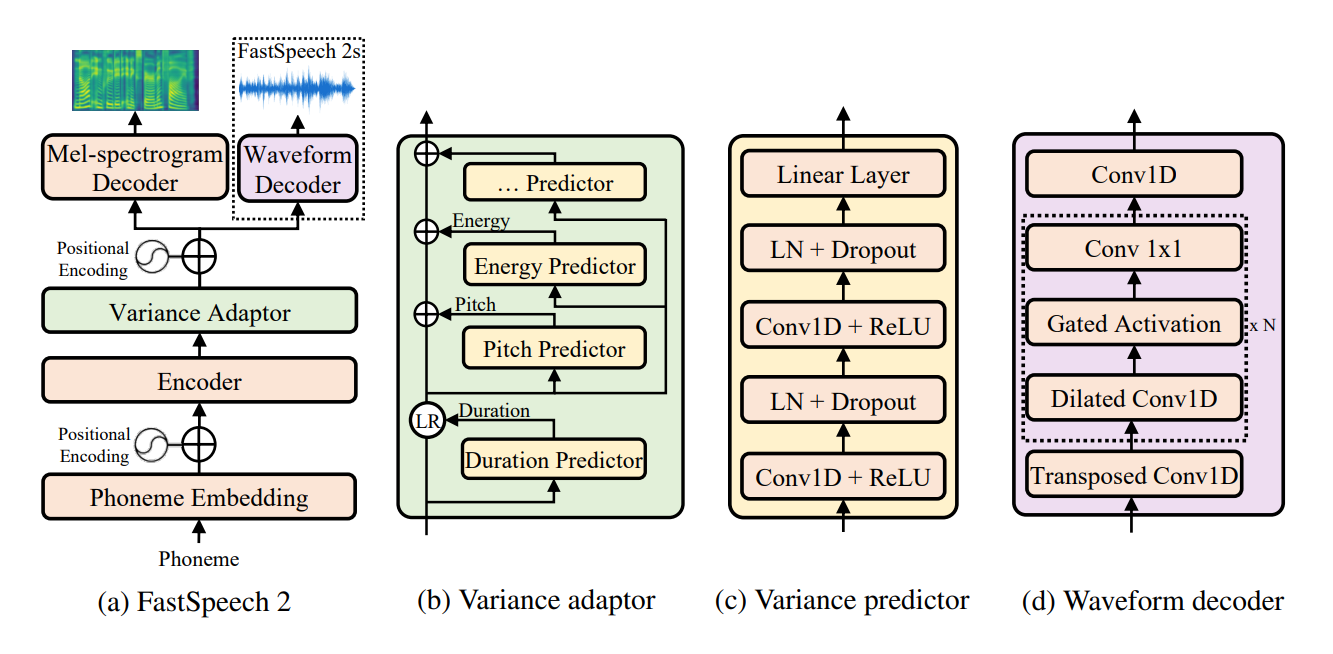UnOfficial PyTorch implementation of FastSpeech 2: Fast and High-Quality End-to-End Text to Speech. This repo uses the FastSpeech implementation of Espnet as a base. In this implementation I tried to replicate the exact paper details but still some modification required for better model, this repo open for any suggettion and improvement. This repo uses Nvidia's tacotron 2 preprocessing for audio pre-processing and MelGAN as vocoder.
All code written in Python 3.6.2 .
- Install Pytorch
Before installing pytorch please check your Cuda version by running following command :
nvcc --version
pip install --pre torch==1.6.0.dev20200623 -f https://download.pytorch.org/whl/nightly/cu101/torch_nightly.html --upgrade
In this repo I use Pytorch nightly for using torch.bucketize feature which is not present in latest PyTorch version i.e 1.5.1. Also use appropriate Cuda version in -f on above installation command while installing nightly version
If you are using my checkpoint for synthesis or re-training please make sure torch version should be
torch==1.6.0.dev20200623otherwise error will be thrown. If you are traing from scratch than just make surepytorchversion should be 1.6.0 or above.
- Installing other requirements :
pip install -r requirements.txt
- To use Tensorboard install
tensorboard version 1.14.0seperatly with supportedtensorflow (1.14.0)
filelists folder contains MFA (Motreal Force aligner) processed LJSpeech dataset files so you don't need to align text with audio (for extract duration) for LJSpeech dataset.
For other dataset follow instruction here. For other pre-processing run following command :
python .\nvidia_preprocessing.py -d path_of_wavs
For finding the min and max of F0 and Energy
python .\compute_statistics.py
Update the following in hparams.py by min and max of F0 and Energy
p_min = Min F0/pitch
p_max = Max F0
e_min = Min energy
e_max = Max energy
python3 train_fastspeech.py --outdir results
Currently only phonemes based Synthesis supported.
python3 synthesis.py --out results --text "DH AH0 N AA1 L AH0 JH AH1 V HH IH1 Z D IH0 F EH1 K SH AH0 N pau pau HH IH1 Z EH1 R AH0 G AH0 N S AH0 N D HH EH0 S T IH1 L AH0 T IY0 T IH0 DH IY0 Y UW0 N AY1 T IH0 D S T EY1 T S pau" --path checkpoints\checkpoint_355k_steps.pyt
- Checkpoint find here
- For samples check
samplefolder.
- Coding of this repo is roughly done just to re-produce the paper and experimentation purpose. Needed a code cleanup and opyimization for better use.
- Currently this repo produces good quality audio but still it is in WIP, many improvement needed.
- Loss curve for F0 is quite high.
- I am using raw F0 and energy for train a model, but we can also use normalize F0 and energy for stable training.
- Using
Postnetfor better audio quality.


